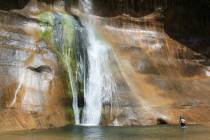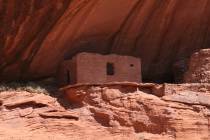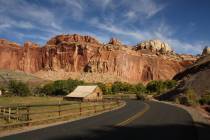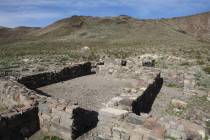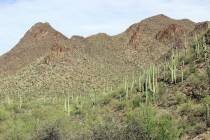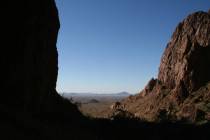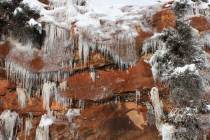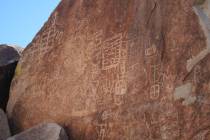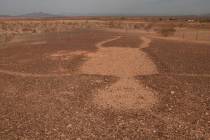Quick trip to Corn Creek from Las Vegas can yield plenty of bird viewing
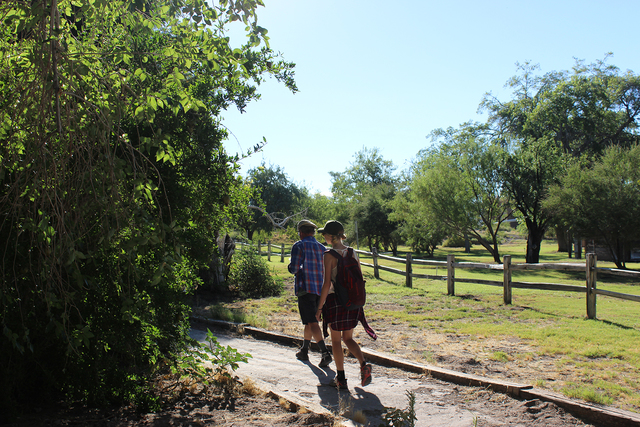
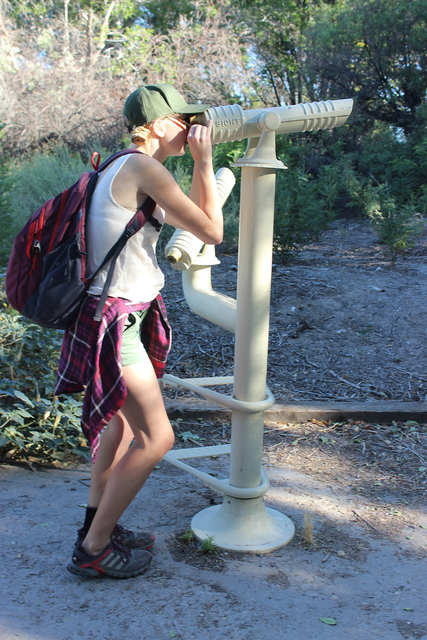
For a short outing from Las Vegas, a trip to Corn Creek at the Desert National Wildlife Refuge is a great choice. Less than 30 miles from the city, you can stroll the short nature trails, visit a perennial stream and spring-fed ponds, see lush vegetation and also do some birding in a quiet outdoor environment. And you can do it all in about half a day.
Oct. 16 is the refuge’s Junior Ranger Day from 11 a.m. to 3 p.m. Bring the children along and they could earn a Junior Refuge Ranger Badge and Desert NWR pin. The special family day affords entrance into the Railroad Tie Cabin, bird wing identification and live snake shows.
Established in 1936 to protect the desert bighorn sheep, the wildlife refuge encompasses about 1.6 million acres, although 846,000 is off-limits to visitors because it is also part of the military Nellis Test and Training Range.
Corn Creek’s elevation is about 2,926 feet, so it might be a few degrees cooler than Las Vegas on any given day.
A visitor center, by definition, is a good place to start a visit. Its job is telling visitors what they are going to see and what it means, and this 10,000-square-foot, state-of-the-art building does the job well. All ages will enjoy the interpretive displays featuring the wildlife and the background on the original ranch. Maps and books are also for sale.
There is a network of 1 1/2 miles of interconnecting trails at Corn Creek. Starting behind the visitor center, you will find five short trails that all interconnect over mostly flat terrain, with three of the trails being ADA accessible. There is no correct way to hike the trails, and you would have a hard time getting lost.
For birders, this a top-notch place to spend an early morning, as about 320 species of birds have been recorded at Corn Creek. If your trip here doesn’t coincide with the hours of the visitor center, the trails are still open, and an outdoor kiosk has trail maps and brochures on what types of birds you might see in any given season.
Corn Creek was a private ranch from 1916 until 1939, when the federal government bought the property. As you walk around, seek out the Railroad Tie Cabin on a side trail off the Coyote Loop. It is estimated to have been built in the 1920s of railroad ties salvaged from a line that operated from Las Vegas to Beatty from 1906 to 1918. Railroad tie construction was a fairly common form of folk architecture in early Southern Nevada, but this is one of the few places you can still examine an example.
Near the cabin is the Pahrump Poolfish Refugium. Here, you can look through the viewing windows at the small fish living in a man-made environment much like the spring where they originally lived. That spring ran dry, and this structure holds most of the world’s few remaining survivors of this species. The refugium isolates and protects them from non-native predators such as crayfish and bullfrogs that were illegally introduced here at Corn Creek and many other locales in Southern Nevada.
Along the Coyote Loop, you will also find mature cottonwood trees, cattails and water-loving plants. You will also find a perennial stream, grassy meadow and a fruit orchard that contains pomegranate, almonds and pecans, all making this place especially attractive to our feathered friends.
The refuge is open all year, 24/7. The visitor center is generally open from 8 a.m. to 4:30 p.m. Friday through Sunday. Days and times are subject to change, so always call ahead. Call 702-879-6110 or visit fws.gov/refuge/desert.
Deborah Wall is the author of “Great Hikes, A Cerca Country Guide” and “Base Camp Las Vegas: Hiking the Southwestern States,” published by Stephens Press. She can be reached at deborabus@aol.com.
Directions
From Las Vegas, go north on U.S. Highway 95 about 26 miles. Go right onto the paved Corn Creek Road for 3.7 miles to Corn Creek Field Station.



